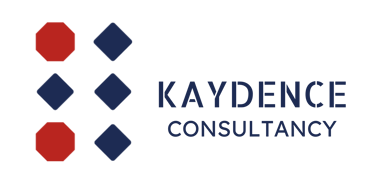Kaydence partners with the CSH to drive innovative solutions in education and healthcare.
The Necessity of Research Work in Corporate Organizations: A Contemporary Perspective
In the rapidly evolving corporate landscape, staying ahead of the curve is not just an advantage; it is a necessity. In such a competitive environment, research work emerges as the backbone of informed decision-making, innovation, and sustained growth.
RESEARCH
1/27/20253 min read


In the rapidly evolving corporate landscape, staying ahead of the curve is not just an advantage; it is a necessity. In such a competitive environment, research work emerges as the backbone of informed decision-making, innovation, and sustained growth. Here, we delve into why research is crucial for corporate organizations and its relevance in the contemporary world.
1. Understanding Market Dynamics
Market dynamics are ever-changing, influenced by economic conditions, consumer preferences, technological advancements, and regulatory environments. Research enables organizations to:
Identify Trends: Recognize emerging trends and adapt strategies accordingly.
Analyze Competition: Gain insights into competitors’ strengths, weaknesses, opportunities, and threats.
Understand Consumer Behavior: Decode the needs, preferences, and purchasing patterns of target audiences.
Example:
Market research helped companies during the pandemic by identifying shifts in consumer behavior, such as the rise of e-commerce and demand for contactless delivery services.
2. Driving Innovation
Innovation is the lifeline of modern businesses. Research fosters innovation by:
Identifying unmet consumer needs and creating solutions.
Exploring new technologies and methodologies.
Providing data for research and development (R&D) initiatives.
Example:
Tesla’s research in renewable energy and autonomous driving has revolutionized the automotive industry.
3. Strategic Decision-Making
In the contemporary business world, decisions backed by research are more likely to succeed. Research equips leaders with:
Data-driven insights to make informed decisions.
Risk analysis to minimize uncertainties.
Strategic foresight to anticipate challenges and opportunities.
Example:
Amazon’s decision to invest in AI-driven logistics and supply chain management is a result of extensive research and data analysis.
4. Enhancing Employee Productivity and Engagement
Research within organizations can also focus on improving internal processes and employee satisfaction. This includes:
Conducting surveys to understand employee needs and concerns.
Researching best practices for workflow optimization.
Measuring the impact of training and development programs.
Example:
Google’s Project Aristotle used research to identify factors that contribute to high-performing teams, leading to more effective collaboration and innovation.
5. Staying Compliant with Regulations
The regulatory landscape is complex and constantly evolving. Research helps organizations:
Stay updated on local and international compliance requirements.
Avoid legal and financial repercussions.
Build a reputation for ethical practices.
Example:
Pharmaceutical companies rely on rigorous research to meet FDA guidelines and other regulatory standards before launching new drugs.
6. Sustainability and Corporate Social Responsibility (CSR)
In the contemporary world, sustainability is a priority. Research plays a pivotal role in:
Identifying sustainable practices and materials.
Measuring the environmental impact of operations.
Developing CSR initiatives that align with community needs.
Example:
Unilever’s research into sustainable sourcing has helped the company reduce its environmental footprint while meeting consumer demand for ethical products.
7. Adapting to Technological Advancements
Technology evolves rapidly, and organizations must stay updated to remain competitive. Research helps businesses:
Assess the feasibility of adopting new technologies.
Understand the implications of digital transformation.
Stay prepared for disruptions like AI, blockchain, or quantum computing.
Example:
Netflix uses data-driven research to refine its recommendation algorithms, ensuring a personalized user experience.
8. Mitigating Risks
Risks are inevitable in business, but research helps minimize them by:
Identifying potential threats in advance.
Conducting feasibility studies for new projects.
Monitoring economic, political, and social factors that may impact operations.
Example:
Banks conduct risk analysis research before introducing new financial products to ensure compliance and market viability.
9. Gaining a Competitive Edge
In a saturated market, research can be the differentiator that sets an organization apart. By:
Offering unique insights into market gaps.
Enhancing customer satisfaction through targeted solutions.
Continuously improving products and services based on feedback.
Example:
Apple’s emphasis on consumer research has enabled it to maintain brand loyalty and consistently deliver innovative products.
Conclusion
In today’s contemporary world, where change is the only constant, research work is indispensable for corporate organizations. It empowers businesses to understand their environment, innovate continuously, make strategic decisions, and build resilience against uncertainties. As organizations embrace data-driven cultures, the role of research will only grow in importance, shaping the future of industries worldwide. Investing in robust research practices is not just a choice but a necessity for those aiming to lead in the modern corporate world.
Kaydence Consultancy
Global platform for study abroad solutions, marketing strategy and your efficient research partner
Contact
Get in touch
director@kaydenceconsultancy.com
+9188916082
© 2025 Kaydence Consultancy. All rights reserved.
Designed with care | Powered by Innovation
Navigation
Company
Career
Legal
M G Road, Kochi, Kerala, India
